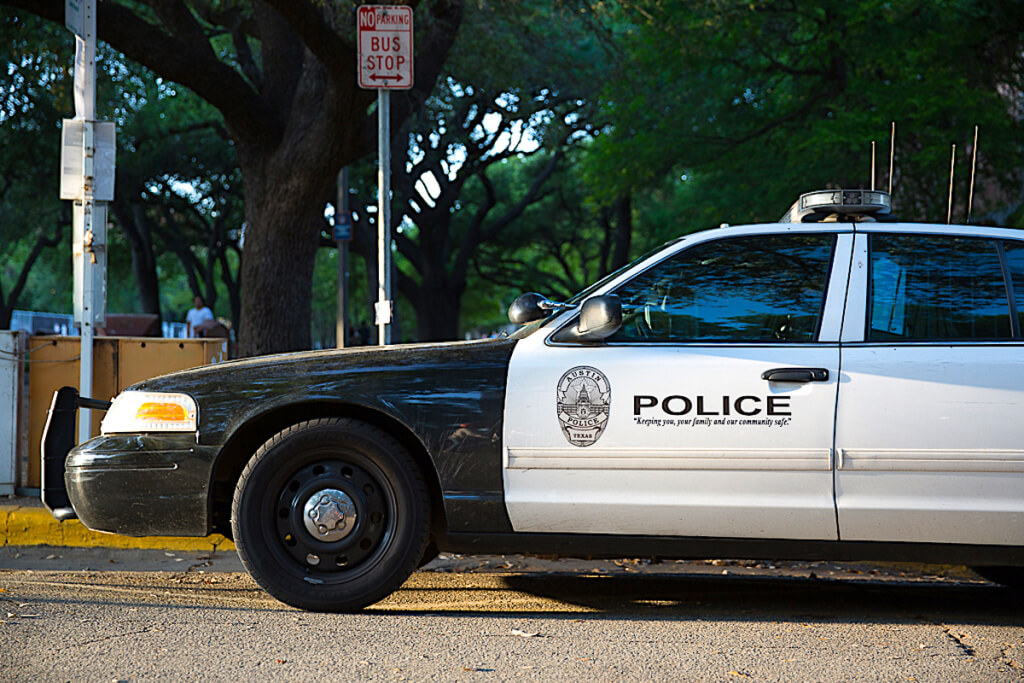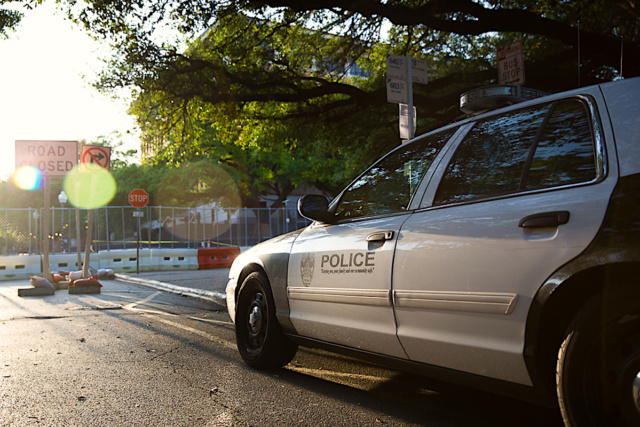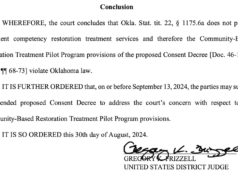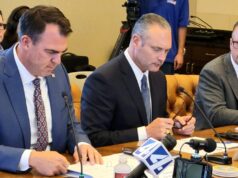
AUSTIN — Austin is unique in its approach to serving the mentally ill, according to local mental health and law enforcement authorities. Since 2012, the Austin Police Department’s Crisis Intervention Team (CIT) has partnered with local paramedics and mental health specialists to build a mental health crisis-response program and to improve the 40 hours of mental health training required of all APD cadets.
“I think we’re kind of ahead of the curve in Austin,” said Sgt. Michael King, the officer in charge of the APD’s CIT, “and we have a lot of help from mental health authorities.”
Though Austin is far from the most populated city in Texas, only Houston has more mental health resources available to its officers, and there are few other CITs in the state.
Laura Wilson-Slocum, the director of the Mobile Crisis Outreach Team (MCOT) from Austin Travis County Integral Care, a mental health-service organization, said law enforcement officers had few options when encountering someone in a mental crisis prior to 2012.
“We got to the police and they said, ‘Well, we can either do nothing, we can commit them, or we can arrest them if they’re engaging in some criminal behavior,’ which a lot of times is some victimless misdemeanor,” Wilson-Slocum said. “And none of us really liked those options.”
So, MCOT and ATCIC applied for federal funding that would allow them to expand the team and work more closely with first responders. That funding came through, and in 2012 MCOT hired more than 20 licensed counselors and psychiatric specialists to take referrals from area police and EMS.
Now, whenever an APD officer or EMS team respond to a call and the primary issue is psychological, they have the option to call for licensed mental health professionals in real-time instead of being forced to commit, arrest or hospitalize people unnecessarily. The idea is for the MCOT counselors to release first responders as quickly as possible when they aren’t needed and provide the same crisis-intervention services that would be available in any clinic to clients wherever they are in the community. This dispatch system is “singular,” Wilson-Slocum said.
“We don’t know of any other place in the country doing it,” she said.
More importantly, it can be effective.
When MCOT is dispatched on a psych-related call, they’re able to divert nearly nine out of every 10 people from being committed and almost all of them from being arrested. In a given month they may respond to as many as 270 calls, meaning they keep hundreds of people from being held unnecessarily. In 2015 alone, they diverted 546 people from jail or hospitalization.

Riding along with a CIT member
Officer Chris Gaines has been a mental health officer (or a CIT member, the terms are interchangeable) for 15 years. It’s unusual to have a patrol officer serve this long, he said, but he’s resisted promotions that would take him out of the streets. This is the work he wants to do.
To that end, Gaines tries to take as many mental health calls as he possibly can. There are 162 CIT patrol officers spread throughout the city, and, while that may sound like a lot, it averages out to only one or two per shift, per sector. Austin is divided into 10 sectors, so only 10 or 20 mental health officers patrol the city at any one time. Gaines is the go-to mental health officer during his day shifts in northeast Austin, so there are plenty of calls to keep him busy.
The day before my ride-along he responded to three, and they took nearly all his time.
At 10 a.m., we got our first call, and Gaines snapped to attention.
As we made our way through the winding streets of northeast Austin, Gaines reviewed the call on the vehicle’s computer and discussed it with the police dispatcher. It was a strange case, he said.
The caller, “Miguel” (not his real name), has had multiple CIT incidents. He was involved in an encounter with CIT officers the night before, after calling to report that he had suicidal thoughts and was inside his car with a knife. That call resulted in a hospital visit, but he was released only hours later. Now, it seems he might be in trouble again.
This call, like many to which the APD mental health officers respond, came from a third party, in this case a local suicide hotline. Miguel had called this hotline and said he was intoxicated and afraid he would hurt himself, but he didn’t want the cops to respond. Unfortunately, now he has no choice: The police are under an obligation to respond whenever immediate harm seems likely.
As Gaines steered our police SUV to Miguel’s address, he noticed a man sitting in a car parked in the driveway. Gaines stopped directly in front of the car, blocking any escape routes, and he waited for a backup officer to arrive. Once she appeared, he motioned for me to stay in the car as he then stepped out.
Gaines and his fellow officer quickly coaxed Miguel out of his car and patted him down. Miguel, a Hispanic 30-something, wore a rumpled shirt and jeans, socks but no shoes, and he shivered a little in the cold morning air. There was no knife, and he seemed cooperative and unthreatening. They ordered him a step or two further away from his car and waved to me. I slowly stepped out of the car and joined them in the driveway.
Officer Gaines spoke to Miguel in a low, calming voice.
“I am a mental health officer. I am here to help,” he said.
Then, Gaines began a series of questions, pausing in between each one to see if Miguel would answer.
Matching a person’s needs with available resources
Back in the car, Gaines called several mental health and chemical-dependency rehabilitation clinics. Miguel wanted to go to Cross Creek, a facility in the neighborhood where he has stayed before. Gaines called to confirm they had a bed. They did, but since Miguel didn’t have insurance, he would need to secure funding or pay for it himself. Gaines was directed to call ATCIC to see if they had any funding available.
It all took about half an hour.
Much of being a CIT officer is navigating the mental health care system, Gaines said with a smile. He spends a lot of his time on hold. Of course, this is part of why people resort to calling the APD with mental health concerns: The system can be overwhelming and inaccessible to those who don’t know where to begin (or who don’t have all day to spend on the phone).
Finally, good news: A bed was available and so was the funding. Miguel would get to spend some time at Cross Creek, as requested, but first we were directed to take him to the mental health facility at a downtown hospital for assessment and a chance to sober up.
‘Help who you can help’
Police involvement can be frightening, even triggering, for individuals already on the edge of a crisis. There is also the ever-present threat of a violent police response. Two days after our interaction with Miguel, a separate team of Austin police officers responded to a mental health call that quickly spiraled out of control.
After her husband placed a mental health call, police shot and killed Micah Dsheigh Jester, a woman who was pointing a replica-semiautomatic BB gun at police and asking them to shoot her.
Jester’s death represents one of hundreds of civilians killed by police every year while dealing with mental illness or emotional crisis. It is the second such fatality in Austin this year.
Even so, Gaines, his fellow CIT and MCOT officers and other responders believe they are making a difference.
“You just do what you can,” he said. “You try to help who you can help, and that’s all you can do.”
The National Suicide Hotline can be reached 24 hours a day by calling 1-800-273-8255.






















